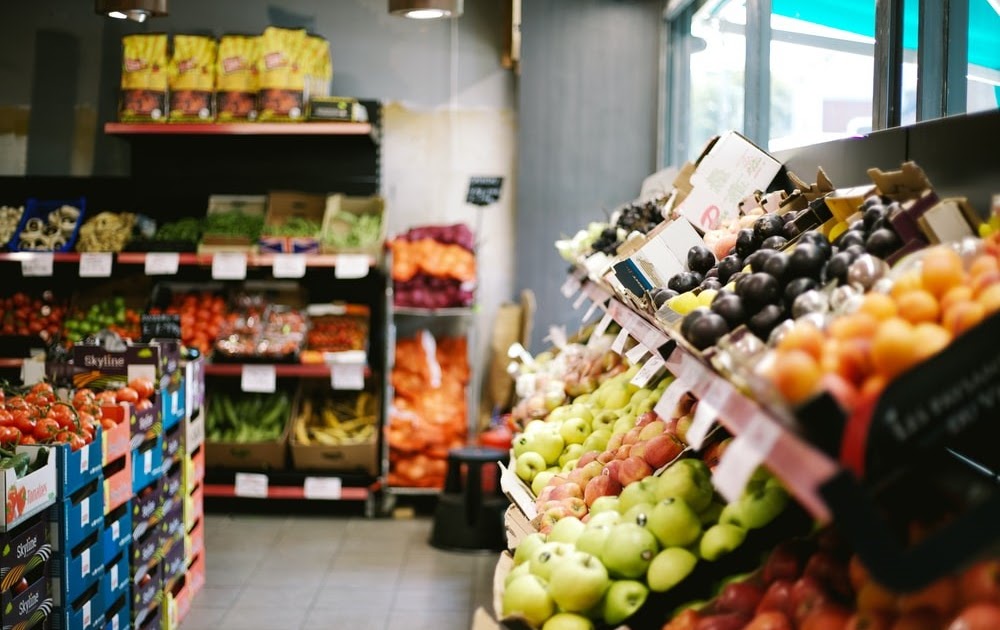15 Ways to Save Money on Groceries

For most households,
paying for groceries is a significant part of monthly expenses, and it’s only
getting more expensive. According to the latest consumer price index, the price for groceries
and other food prepared
at home increased 2.6% over the past year alone. With a little bit of time and
effort, there are ways in which you can significantly lower your grocery bills.
Continue reading for tips on how to do just that.
1. Meal
Plan
You’ve
probably heard it a million times, but meal planning is one of the most
effective ways to cut down on grocery costs. Creating a game plan for the week will help you identify all the ingredients you
need at the store and help you avoid purchasing the things you don’t. We’re
looking at you, check-out aisle candy bars.
2. Keep an
Inventory
It can be
frustrating to buy something at the store, only to come home and find it
already sitting in your cupboard! Keeping a kitchen inventory can not only help you avoid buying unnecessary duplicates but
will also make the aforementioned meal planning a snap! If you don’t have the
time or desire to consistently update a kitchen inventory, be sure to at least take the time to look through your
kitchen as you are planning your meals for the week. You can use what you have
in your home as a starting point for recipe ideas to cut back on the amount of food you need to buy.
3. Make a
List and Stick to It
Once you’ve
planned your meals for the week and have figured out what ingredients you
already have, you’ll want to make a list of the things you need to buy. This can be an old-fashioned
pen and paper list, or you can make it on your phone to ensure you don’t
accidentally leave the list at home!
4. Avoid Shopping
When You’re Hungry
When you’re
hungry, you’re more likely to pick up items that you don’t need. Your mind is subconsciously
focusing on that need, rather than what is on your list. Always be sure to plan
your grocery shopping trips for after a meal. In a pinch, you can grab a small
snack on the way out the door to avoid those hunger-driven purchases.
5. Shop Local
Oftentimes,
you can visit local farmers’ markets for fresh produce that is cheaper than
that in the grocery store. Items sold at farmers’ markets are most likely organic
and produced locally, making them better for you and your wallet, while
supporting your neighbors!
6. Buy in
Bulk
Buying in
bulk is a great way to save money on all different kinds of groceries. Pro-Tip: Always compare unit prices (the cost per ounce or per
pound) to ensure you’re getting the best value. If the unit price isn’t listed, calculate it by dividing
the total cost by the number of units.
7. Don’t
be Afraid of Expiration Dates
Many times,
foods that are set to expire within the next day or two are significantly
marked down. Items such as breads, baked goods and meats can all be frozen
before the expiration date and are just as good as they were fresh!
8. Eat
Your Leftovers
This is one
of the easiest ways to save money! Instead of throwing your leftovers away,
save them for lunch or dinner the next night. You’ll save time not having to cook and
clean up afterwards, and you won’t be wasting perfectly good food.
9. Freeze
Extras
If you’re
someone who doesn’t like to eat the same thing a few nights in a row, you can
throw leftovers in the freezer. Remember to label items with the freeze date on your
freezer bag and take the food out to defrost when you’re looking for an easy
weeknight meal.
10. Be Coupon-Savvy
Couponing is
another effective way to save money on your groceries. You can check in your local newspapers, grocery store publications, and online for
coupons to help you save on your regular purchases. You can even use coupons to
inspire meal ideas and help you plan!
11. Try
Growing Your Own Produce
Save money
on produce by starting your own garden. A pack of herbs, for example, costs between $3 and $6 and
can only be used for a handful of meals. Growing herbs, on the other hand, will
cost you close to the same amount of money and will last you for several
months.
12. Buy Meat
When It’s On Sale
Meat can be
pricey, but it’s important to know that buying meat on sale can save your wallet
over time. After purchasing meat that was on sale, you can pack it up, label it, and stick it in the freezer
until you are ready to use it. Buying different cuts of meats based on the
available sales can also prompt you to try new things and expand your culinary skills.
13. Buy Generic
More often
than not, there is not a noticeable difference between name-brand and
store-brand products. Rather than comparing packaging, take a minute to compare
ingredients. Doing a little upfront research can help you find a better deal
for what is essentially the same product.
14. Keep
an Eye on the Register
Accidents
happen! Keep an eye on the register to make sure the same item isn’t entered
twice or that you don’t miss a discount that you saw listed in the aisle. We also recommend making a
habit of reviewing your receipts, just to make sure you were charged correctly
for each item.
15. Package
Your Own Snacks
Avoid
purchasing individually wrapped items and snacks. These items are often more
expensive than if you were to buy a bigger box or bag and portion out your
snacks at home.
For more information and tips on creating effective money habits, check
out the link below!







